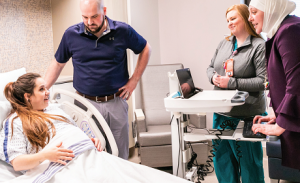Learning Disabilities: GETTING HELP IN SCHOOL
Getting a child with a learning disability help in school is important. For a child diagnosed with a learning disorder in grades K – 12, an IEP (Individualized Education Program) is a federal and state mandated and protected document that schools must adhere to. To get an IEP for your child, you must initiate the process. Special education kicks in for the child with an IEP.
A child’s IEP comes about after his disability has been confirmed; after determining if there’s an adverse effect to the child’s education as a result of the disability; and if it is determined that specially designed modifications are needed to help a child progress with the general curriculum at school.
The IEP includes meeting with a team of school experts and the family of the child who all work together to determine the child’s best needs in formulating an education plan going forward. Written out, IEPs are highly specific and include goals needed, such as “understanding and using longer sentences.”
It’s essential for parents to be in the process because they know their child best. The IEP is written by the team and details the number of special sessions a child will have each week, month, quarter or semester to accomplish educational goals and other recommended modifications.
Schools are required to keep kids with IEPs with their peers as much as possible, in the least restrictive environment, and parents have options if they disagree with services or with the conclusion of an IEP team.
To learn more about IEPs, go to education.ohio.gov/Topics/Special-Education.
What’s New at CCHMC
Cincinnati Children’s Hospital and Medical Center (3333 Burnet Ave., Cincinnati) has exciting happenings going on:
• CCHMC and Tri-Health have teamed together to introduce a new special delivery unit in the Cincinnati Children’s Fetal Care Center. Healthy moms expecting a baby with known medical conditions will be able to utilize the Center 24 hours a day, seven days a week. The Center includes a triage room, six dedicated rooms for labor, delivery and postpartum recovery. This fetal care center will help families be together in one location. Learn more at cincinnatichildrens.org/service/f/fetal-care.
• The COVID-19 pandemic presents families with many stressful challenges. CCHMC wants families to know if a situation becomes overwhelming, there are resources available to help. The new Safe and Sound @ Home Cincinnati campaign was designed by CCHMC, Cincinnati Public Schools and Hamilton County Job & Family Services to raise awareness about parenting support and resources available. Learn more at
cincinnatichildrens.org/patients/coronavirusinformation/adult-coping.
• The Mobile Intensive Care Unit (MICU) added a brand-new emergency vehicle to their fleet. “Lucky #13” features exterior cameras, a dual stretcher loading system, an ultraviolet light disinfectant system and more. The MICU Team drives more than 6,200 infants and children each year to receive the care they need at CCHMC. To learn more about Cincinnati Children’s Hospital and Medical Center’s care, visit cincinnatichildrens.org or call 513-636-4200.





